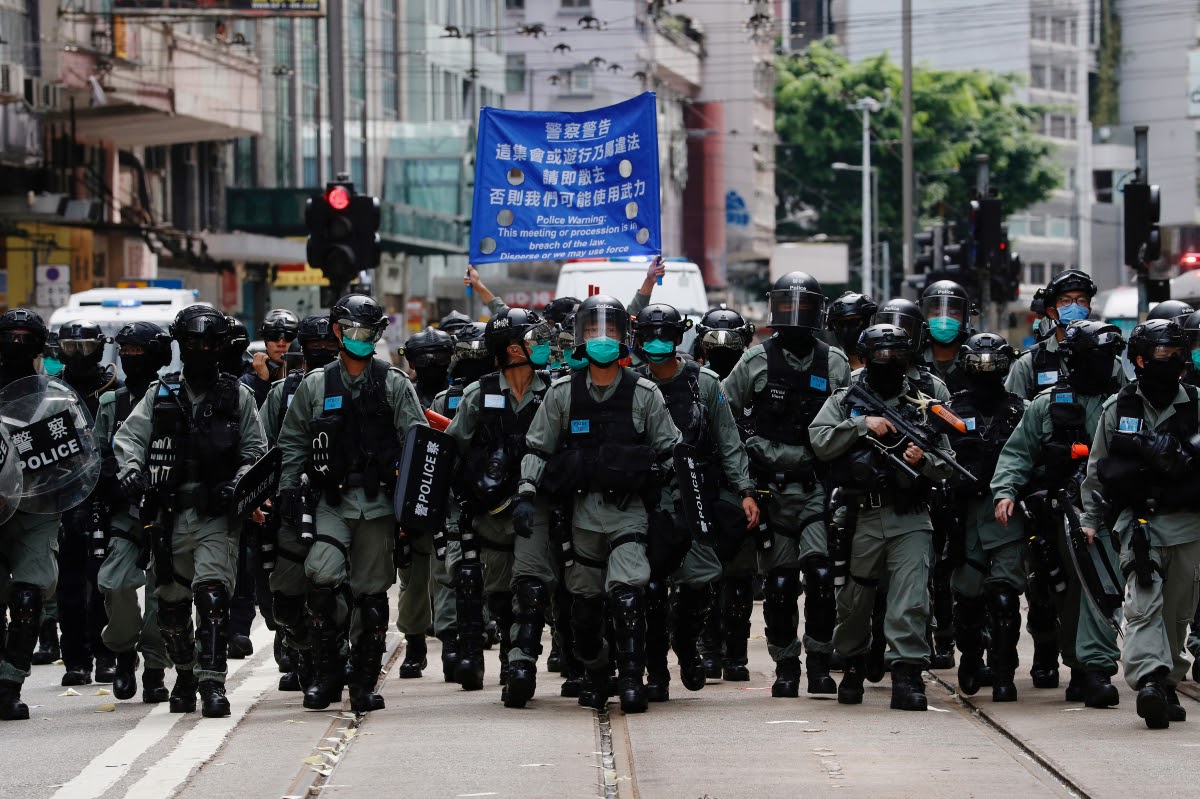U.K. and Taiwan welcome Hongkongers as arrests begin under Beijing’s national security law
On the first day of Beijing’s new national security law in Hong Kong, 10 protesters were arrested on charges related to the law, and a chill swept over the city. Meanwhile, the U.K. and Taiwan made plans to welcome fleeing Hongkongers.

Today, July 1, is the 23rd anniversary of Hong Kong’s handover to Chinese sovereignty. Every year since 2003, there have been large pro-democracy protests on this day in the city, and this year is no exception.
Despite a ban on large gatherings amid COVID-19, and the national security law that Beijing just imposed on Hong Kong, “thousands” of demonstrators gathered on the streets in “open defiance” of the authorities, the South China Morning Post reports.
- Police “arrested about 370 people — at least 10 of them for allegedly violating” the new national security law, the SCMP says. The police “targeted demonstrators chanting pro-independence slogans or wielding independence flags,” the Hong Kong Free Press reports.
- The first protester arrested for national security violations was holding a pro-independence flag, according to the Hong Kong Police Force on Twitter. New York Times reporter Austin Ramzy noted that the protester may have been trying to troll the police, as “the flag appears to say, in tiny print, ‘no to’ before ‘Hong Kong independence’ and ‘不要’ [bùyào, don’t want] before ‘香港獨立’ [xiānggǎng dúlì, Hong Kong independence].”
- Suspects arrested on national security law charges “will be tried in the mainland,” Zhāng Xiǎomíng 张晓明 of Beijing’s Hong Kong and Macao Affairs Office said, per Reuters.
Arrests are only a small part of the effect of the new national security law. The broader impact of the law is seen as a “chill over the city” among those who previously exercised their constitutionally mandated free speech without fear. The New York Times reports:
A museum that commemorates the 1989 Tiananmen Square massacre is rushing to digitize its archives, afraid its artifacts could be seized. Booksellers [such as Albert Wan 溫敬豪 Wēn Jìngháo, the co-owner of Bleak House Books] are nervously eyeing customers, worried they could be government spies. Writers have asked a news site [InMedia HK] to delete more than 100 articles, anxious that old posts could be used against them.
“With the passage of the national security law, pro-democracy activists face the same dilemma as their mainland counterparts: choosing between fear and their ideals,” Li Yuan writes, also in the New York Times.
The U.K. and Taiwan reiterate plans to welcome Hongkongers
“Up to three million Hong Kong residents are to be offered the chance to settle in the UK and ultimately apply for citizenship, Boris Johnson has said,” the BBC reports. About 350,000 Hongkongers currently hold a British National Overseas Passport, and 2.6 million more are eligible; all will be allowed to stay in the U.K. for five years, then apply for settled status and citizenship.
“Taiwan opened an office on Wednesday to help people fleeing Hong Kong after China imposed new national security laws in the city, with a senior minister saying Taiwan hoped to seize the opportunity to attract professionals and capital from the city,” Reuters reports. In response, Beijing’s Taiwan Affairs Office described Taiwan’s ruling Democratic Progressive Party as a “black hand” that is trying to “mess up” Hong Kong, according to the SCMP.
“Britain and some two dozen Western countries urged China to reconsider the law” at the UN Human Rights Council, per Reuters.
- The U.S. withdrew from that council two years ago, so its highest-profile objection to Beijing’s law came in a press release by Secretary of State Mike Pompeo. The statement bashed Beijing using new wording, but offered no new indications of policy or plans to welcome Hongkongers fleeing the city.
More to read on the implications of the new national security law:






